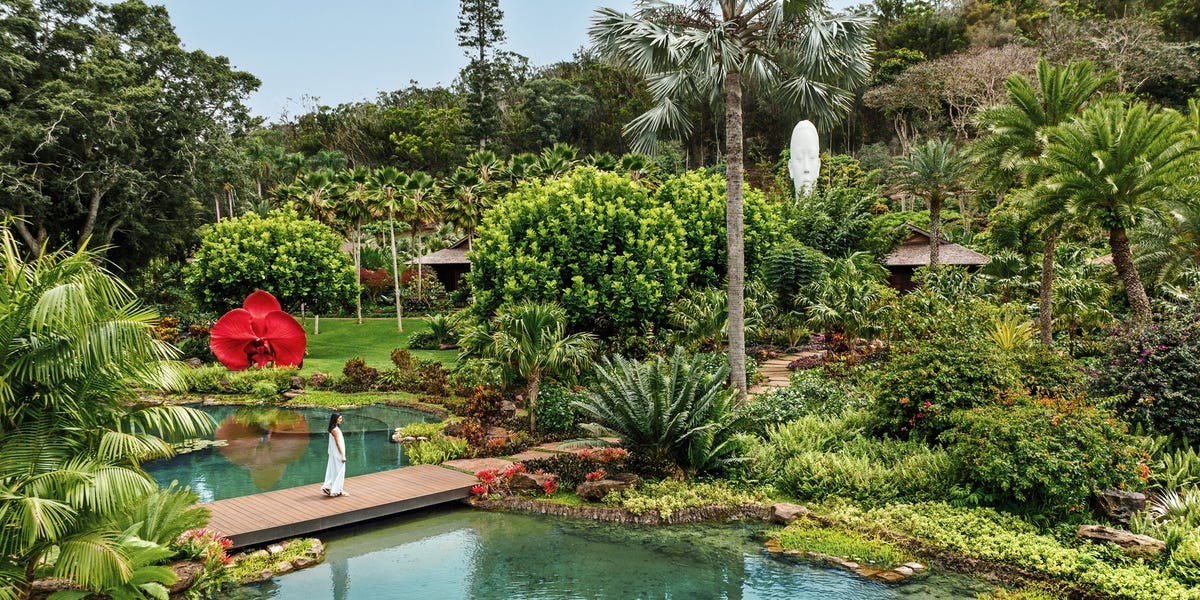Elite longboard surfer Kelia Moniz recently experienced a new trend in luxury travel: a guided wellness retreat designed not just for relaxation, but for deep, restorative rest. Moniz, who balances professional life with motherhood and business ownership, sought an escape from constant decision-making and a return to a more natural rhythm. Her experience at Sensei Lānaʻi, A Four Seasons Resort, highlights a growing demand for intentional recovery in an increasingly demanding world.
The Rise of Intentional Recovery
The modern wellness industry often focuses on optimization—more workouts, stricter diets, biohacking. But Sensei Lānaʻi offers something different: permission to unclench. This approach is particularly relevant now, as burnout becomes a widespread issue across professions and lifestyles. Moniz’s journey illustrates how luxury can be redefined not through extravagance, but through carefully designed environments that prioritize mental and physical decompression. The resort’s emphasis on the “Sensei Way”—Move, Nourish, Rest—creates a framework for holistic wellbeing.
A Sanctuary Designed for Calm
Sensei Lānaʻi isn’t simply a spa; it’s a meticulously curated experience. Guests arrive to a secluded property blending Japanese aesthetics with Hawaiian natural beauty, featuring art installations designed to encourage pause and reflection. Accommodations like the Kōʻele Suite offer private balconies overlooking lush gardens, reinforcing a sense of tranquility. The environment is deliberately stripped of distractions, allowing guests to fully disconnect without the usual pressures of travel or daily life.
Science-Backed Restoration
The retreat’s effectiveness stems from its integration of scientific methodology with human-centered guidance. Co-founder Dr. David Agus’ approach focuses on foundational health, providing guests with personalized programs informed by fitness, nutrition, and mindset assessments. Sensei Guides use biofeedback and behavioral science to help guests understand their own stress responses and develop practical coping mechanisms. Moniz’s experience with brainwave monitoring and personalized meditation sessions exemplifies this blend of data-driven insights and actionable tools.
Nourishment as a Foundation
The resort’s commitment to wellbeing extends to its culinary offerings. Sensei’s on-site hydroponic farm ensures fresh, locally sourced ingredients, simplifying the decision-making process around nutrition. Menus emphasize mindful eating without rigid restrictions, aligning with the broader philosophy of effortless wellbeing. The inclusion of nearby establishments like Nobu and Malibu Farm further enhances the dining experience without sacrificing the retreat’s core principles.
The Spa Hale: A Private Escape
Sensei’s spa is designed to maximize sensory comfort. Private Japanese-inspired villas offer infrared saunas, soaking tubs, and outdoor onsen pools, creating a sanctuary for deep relaxation. The absence of strict scheduling and intrusive service allows guests to fully surrender to the experience, prioritizing rest above all else. Moniz’s own experience with deep sleep and lingering treatments underscores the transformative potential of this environment.
Who Benefits Most?
While anyone seeking respite can benefit, Sensei Lānaʻi particularly appeals to those accustomed to high-pressure environments—especially parents, solo caregivers, and individuals who have normalized exhaustion. The resort’s structure eliminates decision fatigue, making it ideal for those who struggle to prioritize self-care. The adults-only setting further enhances the experience, fostering uninterrupted connection and conversation.
Ultimately, Sensei Lānaʻi offers a powerful reminder: restoration isn’t a luxury, but a necessity. The resort’s model proves that prioritizing rest isn’t about escaping life—it’s about learning to integrate it into a sustainable and fulfilling existence.



































